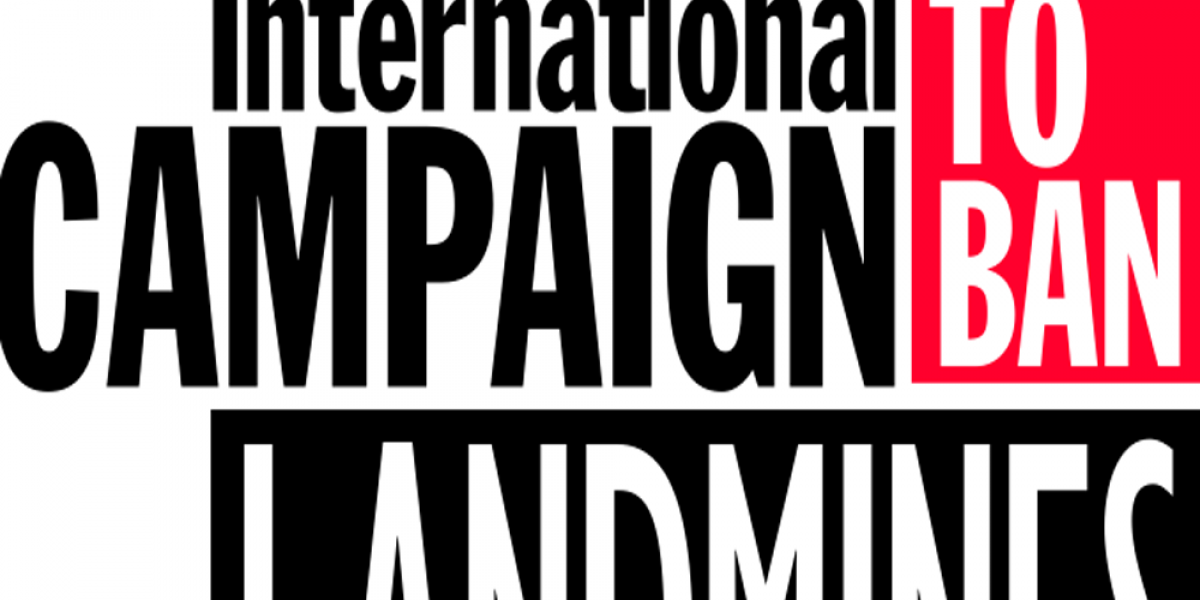Q&A with landmine campaigner Yeshua Moser-Puangsuwan
05 November 2012

Asia Pacific, 5 November 2012 — As part of the International Campaign to Ban Landmine’s 20th Anniversary celebrations, ICBL spoke to Yeshua Moser-Puangsuwan, a veteran campaigner who has been involved in [landmine advocacy] since 1994. Yeshua researches in Asia, the Pacific, the Middle East and North Africa for the Ban Policy section of the Landmine and Cluster Munition Monitor of the ICBL-CMC. In a fascinating interview, he tells us about his work in Myanmar (Burma), and his hopes for the heavily mine-affected country.
Why and how did you get involved with the ICBL?
I was working as the regional representative for a non-governmental organisation [on the Cambodia border] in Thailand in 1994, and [we received] a flyer in the mail on the campaign to ban landmines. I immediately felt it would be successful and had great potential and so I lobbied within our organisation for us to endorse the campaign.
Back in those days, Jody Williams- ICBL’s founding coordinator and 1997 Nobel Laureate for Peace- still wrote personal thank you letters to every NGO that joined. We were number 174. Many years later I became part of the steering committee of the ICBL. We were also a founding member of the Cluster Munition Coalition. For the last 5 years I‘ve actually worked for the campaign in our research department, the Landmine and Cluster Munition Monitor.
Do you have a favourite or most memorable moment from your time working with the ICBL?
When we started the Landmine Monitor process, Lloyd Axeworthy- the Foreign Minister of Canada who launched the Ottawa process for the Mine Ban Treaty- came and [spoke at the] first meeting of researchers for the Monitor. We had at least 80 researchers from different parts of the globe, and we [were launching] the first report on the universalisation and implementation of the landmine convention. [Lloyd] said, “this is the future of arms control. It’s not what the governments are doing it’s what non-governmental organisation are going to do to keep them to their word.” I believed that at the time, and I still believe it today.
What changes have you seen in the countries you have been involved with or working with?
I’ve been involved with several countries because I was in a regional position [when] we joined the campaign. Now as a research coordinator, I am… the key researcher on Burma- the key challenge country [for landmine advocacy]. They have not been known historically for humanitarianism and of course our movement is founded on humanitarian principles. Starting to work in this country was very, very, hard.
I received nothing but hostility and suspicion. Burma is a country where change has come very slowly. A little bit quicker in the last year, but very slowly, [especially] 20 years ago. When I started talking about researching for the Landmine Monitor, [the government] basically said “what’s that?” Three years later, when I mentioned it again they said, ‘ah ha’. Then I knew I was penetrating in somehow with the message!
We published our Landmine Monitor report in Burmese language each year, sent it to all of the ranking members of the military, and broadcast it to people on short-wave radio services in Burmese. Even some political prisoners heard my broadcasts. When they were free I met them and they told me about it. Slowly but surely we created more and more awareness. Now for the first time I can say that there’s a little bit of hope that the landmine tragedy [in Burma] may be coming to an end.
Because of the campaign?
The campaign has certainly [contributed] and more people are aware of the issue. But also armed conflict is coming to an end, and that’s key.
What would you like to see happening in the countries you’ve been working in within a five to ten year period?
There’s not really ‘anything I’d like to see’ because I will see it- and that [is] an end to the landmine problem. There’s a very good chance that there will be an end to the landmine problem in Thailand within 5 years, and close to an end to the landmine problem in Burma. We’ll see a mine action programme [in Burma] within a year and if it gets adequate support, [the country’s mines] can be cleaned up relatively quickly. It’ll probably be at least a good five years— but it will be done.
What needs to be done in these five years?
In Thailand it’s a bit more about political will and in Burma it’s just a matter of how fast they can mobilise towards this. I am confident that within five years we’re going to be close to the end, if not at the end.

